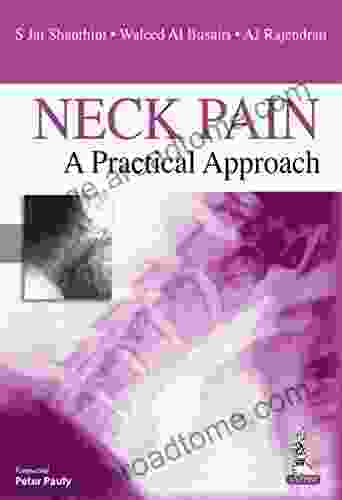Unlock Organizational Success: A Comprehensive Guide to Taxonomies, Knowledge, and Organizational Effectiveness

In today's rapidly evolving business landscape, organizations are grappling with the challenge of managing and leveraging vast amounts of information effectively. Taxonomies, as powerful tools for knowledge organization, play a pivotal role in addressing this challenge. This article delves into the fundamentals of taxonomies, their impact on knowledge management, and their significance for organizational effectiveness.
4.3 out of 5
| Language | : | English |
| File size | : | 5999 KB |
| Text-to-Speech | : | Enabled |
| Screen Reader | : | Supported |
| Enhanced typesetting | : | Enabled |
| Word Wise | : | Enabled |
| Print length | : | 298 pages |
What are Taxonomies?
Taxonomies are hierarchical classification systems that organize knowledge into structured categories. They provide a common language and understanding within an organization, facilitating efficient knowledge sharing, retrieval, and utilization.
Taxonomies can be structured in various ways, including:
- Single-hierarchy taxonomies: A single hierarchy organizes all knowledge into one comprehensive structure.
- Multi-hierarchy taxonomies: Multiple hierarchies are used to organize knowledge based on different perspectives or contexts.
- Faceted taxonomies: Knowledge is organized into multiple, independent facets, allowing for flexible and customizable knowledge retrieval.
The Role of Taxonomies in Knowledge Management
Taxonomies serve as the backbone of effective knowledge management systems. They enable:
- Knowledge discovery: Taxonomies provide a structured framework for organizing and searching knowledge, making it easier to discover relevant information.
- Knowledge sharing: Taxonomies facilitate the sharing of knowledge across teams and departments, breaking down silos and fostering collaboration.
- Knowledge reuse: By classifying knowledge into reusable categories, taxonomies enable organizations to leverage existing knowledge and avoid duplication of effort.
The Impact of Taxonomies on Organizational Effectiveness
Organizations that effectively implement taxonomies experience significant benefits, including:
- Improved decision-making: Taxonomies provide a structured framework for analyzing and making informed decisions based on relevant knowledge.
- Increased productivity: By reducing time spent searching for and organizing information, taxonomies enhance productivity and efficiency.
- Enhanced innovation: Taxonomies foster knowledge sharing and collaboration, leading to the generation of new ideas and innovative solutions.
Best Practices for Taxonomy Development
Creating effective taxonomies is crucial for maximizing their impact. Best practices include:
- Involve stakeholders: Engage all relevant stakeholders in the taxonomy development process to ensure alignment with business needs.
- Define clear objectives: Determine the specific goals and objectives that the taxonomy should achieve.
- Use a collaborative approach: Foster collaboration among team members and subject matter experts to ensure a comprehensive and well-rounded taxonomy.
- Test and iterate: Regularly test and refine the taxonomy to ensure its effectiveness and relevance.
Real-World Examples of Taxonomy Implementation
Numerous organizations have successfully implemented taxonomies to improve knowledge management and organizational effectiveness. Here are a few notable examples:
- BBC: The BBC uses a taxonomy to organize its vast archive of content, making it easier for users to discover and access relevant programs.
- IBM: IBM developed a global taxonomy to standardize knowledge across its worldwide operations, enhancing collaboration and knowledge sharing.
- US National Library of Medicine: The National Library of Medicine's Medical Subject Headings (MeSH) taxonomy is a widely used resource for organizing medical literature, facilitating research and knowledge discovery.
Research Insights on Taxonomies
Research has consistently demonstrated the positive impact of taxonomies on organizational effectiveness. Studies have shown that:
- Taxonomies can improve knowledge findability by up to 30%.
- Organizations with effective taxonomies experience a 15% increase in productivity.
- Taxonomies contribute to a 10% increase in innovation output.
Taxonomies are indispensable tools for organizations seeking to effectively manage and leverage knowledge. By providing a structured framework for organizing and accessing information, taxonomies empower organizations to achieve greater success in decision-making, productivity, innovation, and overall organizational effectiveness. As the volume and complexity of information continues to grow, taxonomies will become increasingly critical for organizations seeking to thrive in the knowledge economy.
About the Book: Taxonomies Knowledge And Organisational Effectiveness
The book "Taxonomies Knowledge And Organisational Effectiveness" provides a comprehensive guide to the theory and practice of taxonomies in organizational settings. Written by leading experts in the field, the book covers all aspects of taxonomy development and implementation, from planning and design to evaluation and maintenance. With real-world case studies and practical tips, the book empowers readers to harness the power of taxonomies to transform their organizations into knowledge-driven enterprises. Free Download your copy today to unlock the full potential of taxonomies for your organization's success.
Free Download your copy now
4.3 out of 5
| Language | : | English |
| File size | : | 5999 KB |
| Text-to-Speech | : | Enabled |
| Screen Reader | : | Supported |
| Enhanced typesetting | : | Enabled |
| Word Wise | : | Enabled |
| Print length | : | 298 pages |
Do you want to contribute by writing guest posts on this blog?
Please contact us and send us a resume of previous articles that you have written.
 Book
Book Novel
Novel Page
Page Chapter
Chapter Text
Text Story
Story Genre
Genre Reader
Reader Library
Library Paperback
Paperback E-book
E-book Magazine
Magazine Newspaper
Newspaper Paragraph
Paragraph Sentence
Sentence Bookmark
Bookmark Shelf
Shelf Glossary
Glossary Bibliography
Bibliography Foreword
Foreword Preface
Preface Synopsis
Synopsis Annotation
Annotation Footnote
Footnote Manuscript
Manuscript Scroll
Scroll Codex
Codex Tome
Tome Bestseller
Bestseller Classics
Classics Library card
Library card Narrative
Narrative Biography
Biography Autobiography
Autobiography Memoir
Memoir Reference
Reference Encyclopedia
Encyclopedia Tom Mangold
Tom Mangold Warren Littlefield
Warren Littlefield Kenn Thomas
Kenn Thomas Thea Orozco
Thea Orozco Norah Lofts
Norah Lofts Orrin H Pilkey
Orrin H Pilkey Phoebe Taplin
Phoebe Taplin Tarsh Ashwin
Tarsh Ashwin Tracey L Reid
Tracey L Reid Peter Cartwright
Peter Cartwright Orlando Ribeiro
Orlando Ribeiro Phoebe Caldwell
Phoebe Caldwell Stanley H Block
Stanley H Block Anna Mindess
Anna Mindess Olivia Wylie
Olivia Wylie Robert Colburn
Robert Colburn Ray Bella
Ray Bella Yewande Omotoso
Yewande Omotoso Rachel Gilson
Rachel Gilson Peter Roop
Peter Roop
Light bulbAdvertise smarter! Our strategic ad space ensures maximum exposure. Reserve your spot today!

 Derrick HughesUnlocking the Power of Servitude: Empowering the Church with The Pastor Armor...
Derrick HughesUnlocking the Power of Servitude: Empowering the Church with The Pastor Armor... Adrien BlairFollow ·3.5k
Adrien BlairFollow ·3.5k Todd TurnerFollow ·8.7k
Todd TurnerFollow ·8.7k Timothy WardFollow ·2.3k
Timothy WardFollow ·2.3k Greg CoxFollow ·6.9k
Greg CoxFollow ·6.9k Oscar WildeFollow ·5.7k
Oscar WildeFollow ·5.7k Jaime MitchellFollow ·17.5k
Jaime MitchellFollow ·17.5k Colin RichardsonFollow ·11k
Colin RichardsonFollow ·11k Michael SimmonsFollow ·13k
Michael SimmonsFollow ·13k

 W. Somerset Maugham
W. Somerset MaughamNourishing Delights: Easy Recipes Without Salt, Oil, or...
Are you looking for...

 Zachary Cox
Zachary CoxThe Art of Kitchen Fitting: A Masterful Guide to Culinary...
The kitchen, the heart of...

 Elliott Carter
Elliott CarterArticulating the Spirit of Black Women Teacher Leaders:...
In the tapestry of education,...

 James Gray
James GrayThe Complete Guide to Arduino: Your Journey to...
: Unveiling the...
4.3 out of 5
| Language | : | English |
| File size | : | 5999 KB |
| Text-to-Speech | : | Enabled |
| Screen Reader | : | Supported |
| Enhanced typesetting | : | Enabled |
| Word Wise | : | Enabled |
| Print length | : | 298 pages |













